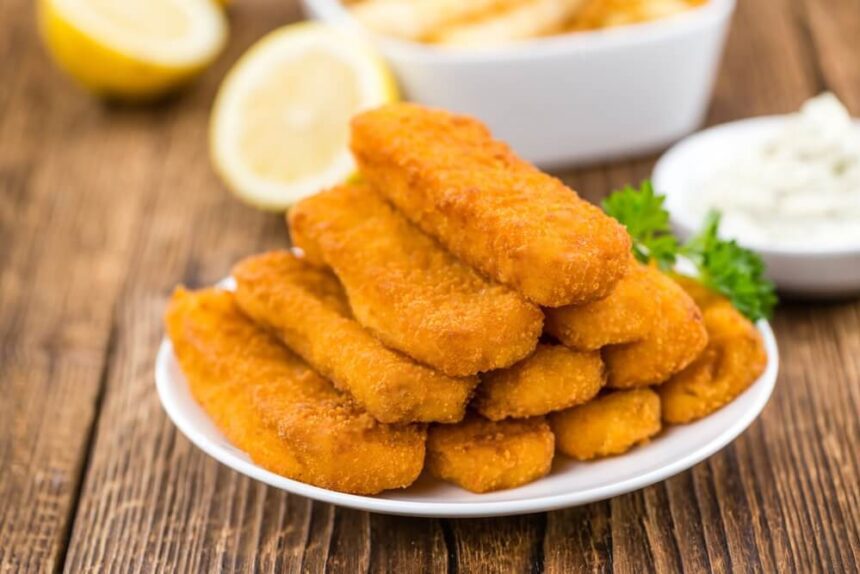As cat owners, we are often tempted to share our favorite human foods with our furry companions. One common food item that may catch our attention is fish sticks. After all, cats are known for their love of fish, and fish sticks seem like a convenient treat. However, when it comes to our pets’ health, it is crucial to be well-informed about what is safe and beneficial for them to consume. In this article, we will delve into the topic of whether cats can eat fish sticks, examining their dietary needs, potential risks, and healthier alternatives to consider.
Understanding the Feline Diet
To understand whether fish sticks are suitable for cats, we must first comprehend their natural dietary requirements. Cats are obligate carnivores, meaning their bodies are adapted to thrive on a diet primarily consisting of animal protein. In the wild, they would consume prey such as rodents, birds, and small mammals, which provide the necessary nutrients for their overall well-being.
Essential Nutrients for Cats
Cats require specific nutrients to maintain optimal health. These include high-quality proteins, essential amino acids like taurine and arginine, fatty acids such as omega-3 and omega-6, vitamins (A, D, E, and B-complex), and minerals (calcium, phosphorus, and magnesium). Meeting these nutritional needs is vital to prevent deficiencies and ensure proper growth, energy production, immune function, and organ health.
Fish Sticks: A Nutritional Evaluation
Fish sticks are typically made from white fish fillets, coated in breading or batter, and then fried or baked. While fish is a common ingredient in cat food, fish sticks may not be the best choice for several reasons.
Nutrient Imbalance
The breading and batter used in fish sticks contribute little to no nutritional value for cats. These coatings often contain ingredients like wheat flour, cornmeal, and additives that are not part of a feline’s natural diet. Cats require a balanced intake of proteins, fats, and carbohydrates, and fish sticks alone may not fulfill these requirements.
Added Ingredients
Commercial fish sticks often include additives, preservatives, and artificial flavors, which are not ideal for cats. These ingredients can potentially cause gastrointestinal upset or allergic reactions in felines.
Cooking Methods
The cooking process for fish sticks, whether frying or baking, can involve oils, seasonings, or salts that may not be suitable for cats. Excessive sodium or spices can harm their delicate digestive systems.
Potential Contaminants
Fish sticks may contain hidden contaminants, such as mercury, which can accumulate in the body over time and lead to health issues. Additionally, fish sticks may be made from fish species that are less nutritious or more prone to contamination.
Can cats eat fish sticks?
While cats can technically eat fish sticks, it is not recommended to include them as a regular part of their diet. Fish sticks are not formulated to meet the specific nutritional needs of cats and can contain additives, preservatives, and breading that may not be suitable for feline consumption.
Health Risks of Feeding Fish Sticks to Cats
Feeding fish sticks to cats on a regular basis or in large quantities can pose several risks to their health:
Nutritional Deficiencies
If fish sticks become a significant part of a cat’s diet, they may lack essential nutrients found in a balanced feline diet, leading to malnutrition and related health problems.
Gastrointestinal Issues
The breading and additives in fish sticks can irritate a cat’s digestive system, potentially causing vomiting, diarrhea, or other gastrointestinal distress.
Allergic Reactions
Cats, like humans, can develop food allergies. The additives or fish itself used in fish sticks might trigger an allergic reaction in sensitive individuals, leading to itching, skin problems, or respiratory issues.
Weight Gain and Obesity
Fish sticks are typically high in carbohydrates due to the breading or batter. Cats, being obligate carnivores, have limited ability to digest and utilize carbohydrates efficiently. Regular consumption of high-carbohydrate foods can lead to weight gain and obesity in cats, which can increase the risk of various health problems.
Alternatives for Offering Fish to Cats
While fish sticks may not be the best choice for cats, there are alternative ways to incorporate fish into their diet:
Fresh, Cooked Fish
Offering small portions of fresh, boneless, and cooked fish like salmon or tuna can be a healthier option. Ensure the fish is thoroughly cooked, free from seasonings, bones, and skin. Remove any excess oil or fat before feeding it to your cat.
Commercial Cat Food
Many reputable cat food brands offer fish-based options formulated specifically for feline nutritional needs. These products undergo rigorous quality control and provide a balanced diet, ensuring that your cat receives the necessary nutrients without the potential risks associated with human food.
Consult Your Veterinarian
To ensure your cat’s diet is appropriate and well-balanced, it is always recommended to consult with your veterinarian. They can provide personalized recommendations based on your cat’s specific nutritional requirements, age, health condition, and any dietary restrictions.
FAQ’s
Are there any benefits to feeding fish to cats?
Fish can be a source of high-quality protein and essential omega-3 fatty acids, which can have various health benefits for cats. Omega-3 fatty acids, particularly EPA and DHA, support healthy skin and coat, reduce inflammation, and promote cardiovascular health. However, it’s important to provide fish as part of a balanced and appropriate diet for cats, considering their specific nutritional needs and any individual dietary restrictions or sensitivities.
Can I give my cat a small piece of fish stick as an occasional treat?
While it’s generally not recommended to feed fish sticks to cats, giving them a small piece as an occasional treat may not cause immediate harm. However, it’s important to keep in mind that fish sticks lack the necessary nutritional balance for cats and may contain additives that can be harmful. It’s always best to choose healthier alternatives or consult with your veterinarian for suitable treat options for your cat.
Are there any fish species that are safe for cats to eat?
Some fish species are safer and more nutritious for cats than others. Cold-water fish like salmon and trout are typically higher in omega-3 fatty acids, which are beneficial for cats. When feeding fish to your cat, it’s important to ensure it’s boneless, thoroughly cooked, and free from seasonings or additives. Additionally, avoid feeding raw fish to cats, as it may contain parasites or bacteria that can be harmful to them.
Can I give my cat raw fish instead of fish sticks?
Feeding raw fish to cats is generally not recommended. Raw fish can contain bacteria, parasites, or thiamine-depleting enzymes that can be harmful to cats. Thoroughly cooking fish helps eliminate potential health risks. If you want to offer fish to your cat, it’s best to choose cooked, boneless fish that is prepared without any seasonings or additives.
Can I feed my cat canned fish?
Canned fish can be a convenient option to feed your cat, but it’s important to choose the right type and consider a few factors. Look for canned fish that is packed in water or its own juice, rather than oil or brine, as excessive salt or oil can be harmful to cats. Additionally, avoid canned fish that contains added flavorings or seasonings. Always check the label to ensure it does not contain any ingredients that are toxic to cats, such as onions or garlic. Remember that canned fish should not replace a balanced cat food diet, but can be offered as an occasional treat or supplement.
Are there any specific fish I should avoid feeding my cat?
Some fish species may contain higher levels of mercury or other contaminants, which can be harmful to cats when consumed in large quantities. It’s generally recommended to avoid feeding cats fish that are more prone to contamination, such as large predatory fish like swordfish, shark, or tilefish. Stick to fish species that are known to be lower in mercury and contaminants, such as salmon or trout. Also, avoid feeding your cat raw fish as it carries a higher risk of bacterial or parasitic infections.
Can cats eat fish sticks if they are baked instead of fried?
While baking fish sticks instead of frying them may reduce the amount of added oils and fats, it doesn’t significantly alter the fact that fish sticks are processed food with potential additives and breading that cats don’t require. The main nutritional concerns of fish sticks for cats lie in the lack of essential nutrients and the potential additives rather than the cooking method. It’s still best to opt for healthier alternatives that better meet your cat’s nutritional needs.
Can cats eat fish sticks made from other types of fish, such as cod or haddock?
Fish sticks can be made from various types of fish, including cod or haddock. However, it’s important to note that the nutritional value of different fish species can vary. Some fish species may be lower in essential nutrients compared to others. When considering fish sticks made from other types of fish for your cat, it’s crucial to ensure they are thoroughly cooked, free from additives, and provided in moderation. Additionally, consult with your veterinarian for specific guidance on the suitability of different fish species for your cat’s diet.
Can I give my cat fish oil supplements instead of feeding them fish?
Fish oil supplements can be a way to provide cats with the benefits of omega-3 fatty acids found in fish. However, it’s important to choose a high-quality fish oil specifically formulated for cats. Consult with your veterinarian for recommendations on dosage and suitable brands. Keep in mind that fish oil supplements should not replace a balanced diet and should be used as a supplement rather than the primary source of essential nutrients.
Can cats eat other seafood, such as shrimp or crab?
Cats can eat small amounts of cooked seafood such as shrimp or crab, as an occasional treat. However, it’s important to remove any shells, tails, or other inedible parts and ensure the seafood is thoroughly cooked. Seafood should not replace a balanced feline diet but can be offered as a supplement or occasional treat. Keep in mind that some cats may have allergies or sensitivities to seafood, so monitor your cat for any adverse reactions when introducing new foods.
Conclusion
While cats are often portrayed as fish lovers, it is essential to approach their diet with caution. While fish sticks may seem like a tempting treat to share, they are not suitable for regular feline consumption. The nutrient imbalance, potential contaminants, additives, and cooking methods associated with fish sticks can pose risks to your cat’s health. Instead, opt for fresh, cooked fish or high-quality commercial cat food options specifically formulated for feline dietary needs. Prioritizing your cat’s well-being by providing a balanced and appropriate diet will contribute to their long-term health and happiness.



